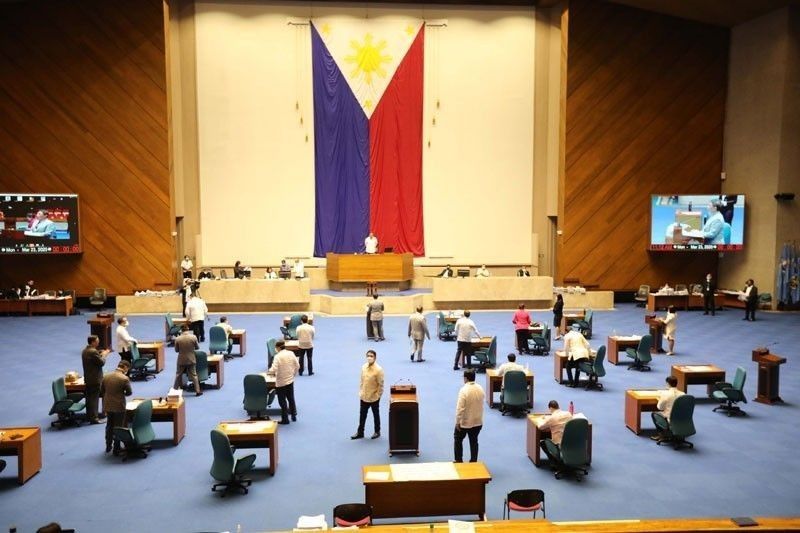House panel approves ‘virtual wedding’ bill

MANILA, Philippines — A bill in the House of Representatives seeking to allow “virtual wedding” or the solemnization of marriage through teleconference has hurdled the committee level.
In an online meeting last Thursday, the committee on revision of laws approved the substitute bill to the proposed “Virtual Marriage Act” principally authored by panel chair Zambales Rep. Cheryl Deloso-Montalla and Kabayan party-list Rep. Ron Salo.
The proposed measure seeks to allow couples to be wed while they are in the same location but presence of the solemnizing officer would be remote or virtual – given that all requirements for a valid marriage are met.
Among the requisites for a valid marriage under the Family Code is the legal capacity of the contracting parties who freely give consent in the presence of the solemnizing officer, which shall be allowed via virtual means under the bill.
The bill proposes that terms “presence and personal appearance” provided in the Family Code be “broadly construed to include virtual presence.”
It defines virtual as “the use of video, audio and data transmission devices that allow people from different physical locations to simultaneously communicate, see and hear each other.”
The measure, however, still requires contracting parties to be physically present together in the same location.
Proponents likened the virtual wedding to the videoconferencing done now in meetings as well as official government proceedings, such as congressional sessions and court hearings, amid the COVID-19 pandemic when gatherings are limited or sometimes even prohibited.
They cited how the current pandemic has caused the postponement and cancellation of many wedding ceremonies because of the prohibition on mass gatherings, observance of physical distancing and the health risks posed to everyone, particularly to the solemnizing officers who are oftentimes senior citizens.
He also noted that the Family Code took effect in 1988 or more than two decades ago when analog means of communication was the prevalent norm and virtual presence was just a figment of the imagination.
Salo explained that the law should adapt to the new normal ways of living, adding that even Congress and the Supreme Court have already adopted videoconferencing in legislative and judicial proceedings, respectively.
He stressed that churches have been holding online masses since the implementation of community quarantine measures to combat the coronavirus pandemic.
“Overseas, technology allowed couples to tie the knot online. As reported, these were done in the states of New York and Colorado, among others. Virtual marriages between Filipino citizens abroad may be solemnized by the consul-general, consul or vice-consul of the Philippines. It may also be officiated by priests or religious leaders of the church they belong to even when the religious leaders are based in the Philippines,” Salo added.
- Latest
- Trending



























